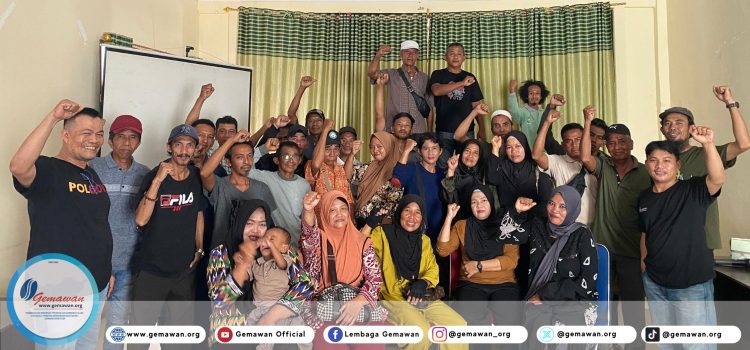
Dozens of local farmers from Segedong and Jongkat Subdistricts, Mempawah Regency, participated in a Farm Business Management Training for Commodity-Based Farmer Networks on September 8–9, 2025, held at the Peniti Besar Village Office.
Participants came from five villages: Peniti Dalam I, Peniti Dalam II, Peniti Besar, Jungkat, and Purun Besar. The activity aimed to strengthen JARING PEDAS (Commodity-Based Farmers Network) as a platform for an independent rural economic movement — built from the village, by farmers, and for farmers.
One participant, Halimah, expressed her enthusiasm:
“Alhamdulillah, over these two days I’ve learned so much that’s useful. This training opened my eyes — farmers must be independent. We shouldn’t just wait for the market; we should be the ones driving the village economy,” she said.
Challenges in the Conventional Market
According to Lani Ardiansyah, known as Ucup, the program was born out of the current anomalies in the agricultural sector.
“So far, farmers have been dependent on conventional markets controlled by capital owners. This system benefits only a few and makes it hard for farmers to progress,” he explained.
Through this training, farmers were encouraged to think of practical solutions: creating village-based alternative markets.
“Imagine if coffee farmers could directly connect with processors and sellers in their own village. That way, farmers wouldn’t just be producers but part of the economic value chain. This is what we call a short marketing chain,” Lani added.
The JARING PEDAS movement emphasizes not only market independence but also the application of agroecological principles. Farmers are encouraged to manage their land sustainably, maintain soil fertility, and reduce dependence on costly external inputs.
Through agroecology, farmers can produce healthy, diverse, and high-quality food, strengthening household food security while improving the competitiveness of local products in the market.
Improving the Welfare of Local Farmers
The short marketing chain concept serves as the main strategy. Instead of relying on multiple intermediaries, farmers are encouraged to sell directly to consumers, cooperatives, or village shops.
With this system:
-
Farmers receive fairer prices,
-
Consumers obtain fresh products at reasonable costs, and
-
Social bonds between farmers and communities grow stronger.
Alternative markets thus become spaces of encounter — not merely for buying and selling, but for building solidarity and food justice.
This training marks the first step of JARING PEDAS in building a village-based local commodity economy in Mempawah. By combining agroecology and short-chain marketing, the movement seeks to establish a self-reliant, equitable, and sustainable rural economic system.
“We hope this initiative can reduce dependence on the old market system while opening new opportunities for farmers’ prosperity,” Lani concluded.
